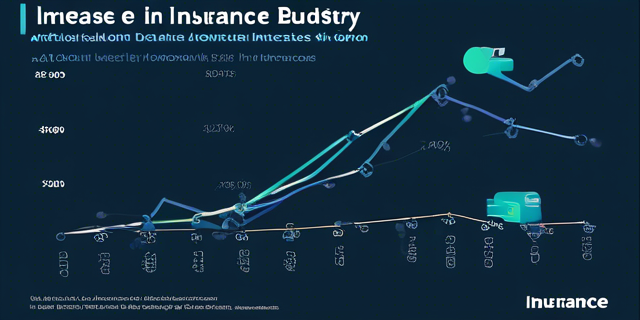Navigating the Best Workers’ Compensation Insurance for 2024

As an employer, ensuring the safety and well-being of your employees should be a top priority. However, accidents and injuries can still occur, even in the most vigilant workplaces. That’s where workers’ compensation insurance comes into play, providing crucial protection for both employers and employees. In this comprehensive guide, we’ll explore the best workers’ compensation insurance options for 2024, helping you make an informed decision that safeguards your business and workforce.
Understanding Workers’ Compensation Insurance
Before we dive into the top providers, let’s first understand what workers’ compensation insurance is and why it’s essential for your business.
Workers’ compensation insurance is a type of insurance that provides coverage for employees who sustain job-related injuries or illnesses. This coverage includes medical expenses, lost wages, and additional benefits depending on the severity of the injury or illness.
In most states, employers are required by law to carry workers’ compensation insurance, with a few exceptions for certain business types or industries. Failure to comply with these regulations can result in significant fines and legal consequences.
Factors to Consider When Choosing Workers’ Compensation Insurance

When selecting the best workers’ compensation insurance for your business, several factors should be taken into consideration:
1. Coverage Limits
Ensure that the insurance provider offers sufficient coverage limits to protect your business and employees adequately. Consider factors such as the size of your workforce, the nature of your industry, and the potential risks associated with your operations.
2. Pricing and Costs
Workers’ compensation insurance premiums can vary significantly depending on the provider, your business’s risk profile, and the state in which you operate. It’s essential to compare quotes from multiple providers and understand the factors that influence pricing.
3. Claims Process
Evaluate the insurance provider’s claims process, including their responsiveness, transparency, and efficiency in handling claims. A smooth and streamlined claims process can make a significant difference in minimizing disruptions and ensuring your employees receive the necessary support.
4. Customer Service
Look for insurance providers that offer excellent customer service, with knowledgeable representatives who can guide you through the policy details, answer your questions, and provide personalized support when needed.
5. Financial Stability
It’s crucial to choose an insurance provider with a strong financial standing and a proven track record in the industry. This ensures that your claims will be paid promptly and that the provider has the resources to handle potential future claims.
Top Workers’ Compensation Insurance Providers for 2024
Based on our extensive research and analysis, we’ve compiled a list of the top workers’ compensation insurance providers for 2024:
1. Nationwide
Nationwide is a well-established and reputable insurance provider known for its comprehensive workers’ compensation coverage options. They offer customizable plans tailored to the unique needs of businesses across various industries. Nationwide’s claims process is efficient, and their customer service team is highly responsive, ensuring a smooth experience for policyholders.
2. The Hartford
The Hartford is a leading provider of workers’ compensation insurance, with a strong focus on risk management and loss prevention. They offer a range of innovative solutions, including virtual care options and return-to-work programs, designed to minimize disruptions and support employee recovery. The Hartford’s financial stability and industry expertise make them a top choice for businesses seeking reliable coverage.
3. AmTrust Financial
AmTrust Financial is a well-respected name in the workers’ compensation insurance market, offering tailored solutions for businesses of all sizes and across various industries. They provide comprehensive coverage options, competitive pricing, and a user-friendly claims process. AmTrust’s commitment to customer service and risk management expertise sets them apart in the industry.
4. Travelers
Travelers is a renowned insurance provider with a strong focus on workplace safety and risk mitigation. Their workers’ compensation insurance offerings include robust loss control services, safety resources, and proactive risk management strategies. Travelers’ financial strength and industry experience make them a reliable choice for businesses seeking comprehensive coverage.
5. Chubb
Chubb is a global insurance leader known for its exceptional customer service and innovative product offerings. Their workers’ compensation insurance solutions are tailored to meet the unique needs of businesses across various industries, including specialized coverage options for high-risk occupations. Chubb’s commitment to risk management and claims handling excellence makes them a top contender in the market.
Evaluating Your Business’s Needs
When selecting the best workers’ compensation insurance for your business, it’s essential to evaluate your specific needs and risk factors. Consider the following:
1. Industry and Occupation Risks
Different industries and occupations carry varying levels of risk when it comes to workplace injuries and illnesses. For instance, construction and manufacturing businesses may have higher risk profiles compared to office-based operations. Ensure that the insurance provider understands your industry’s unique challenges and offers tailored coverage solutions.
2. Employee Demographics
The age, experience, and training levels of your employees can influence the risk of workplace incidents. Younger or less experienced workers may require additional safety training and oversight, which could impact your insurance needs and premiums.
3. Claims History
If your business has a history of workers’ compensation claims, it’s essential to disclose this information to potential insurance providers. Your claims history can impact your premiums and the coverage options available to you.
4. Growth Plans
If your business is planning to expand its operations, hire more employees, or venture into new industries, consider how these changes may impact your workers’ compensation insurance needs. Discuss your growth plans with potential providers to ensure your coverage remains adequate and adaptable.
Implementing Risk Management Strategies
While workers’ compensation insurance is crucial, it’s equally important to implement effective risk management strategies to minimize workplace injuries and accidents. Here are some recommended strategies:
1. Workplace Safety Training
Invest in comprehensive safety training programs for your employees, covering topics such as proper equipment usage, hazard identification, and emergency response procedures. Regular training can help foster a culture of safety and reduce the risk of workplace incidents.
2. Ergonomic Assessments
Conduct ergonomic assessments to identify and address potential risk factors that may contribute to musculoskeletal disorders, such as improper workstation setup or repetitive motion injuries.
3. Incident Reporting and Investigation
Establish a clear and streamlined process for reporting and investigating workplace incidents. Prompt investigation can help identify root causes and implement corrective actions to prevent similar incidents from occurring in the future.
4. Safety Inspections and Audits
Regularly conduct safety inspections and audits to identify and mitigate potential hazards in the workplace. These inspections should cover areas such as equipment maintenance, emergency preparedness, and compliance with safety regulations.
5. Employee Wellness Programs
Implement employee wellness programs that promote healthy lifestyles, stress management, and overall well-being. These programs can contribute to a more productive and engaged workforce while reducing the risk of potential injuries or illnesses.
Navigating the Claims Process
Even with the best risk management strategies in place, workplace incidents can still occur. When an employee sustains a job-related injury or illness, it’s crucial to understand the claims process to ensure a smooth and efficient resolution.
1. Reporting the Claim
Promptly report the incident to your workers’ compensation insurance provider, providing all necessary details and documentation. Timely reporting can help expedite the claims process and ensure your employee receives the appropriate medical attention and benefits.
2. Cooperating with the Investigation
Be prepared to cooperate fully with the insurance provider’s investigation process. This may involve providing additional information, witness statements, or documentation related to the incident.
3. Communication with Employees
Maintain open communication with your injured or ill employee throughout the claims process. Keep them informed of any updates or developments, and provide support and resources as needed.
4. Return-to-Work Programs
Many insurance providers offer return-to-work programs designed to facilitate an employee’s safe and gradual transition back to their job duties after an injury or illness. These programs can help minimize productivity losses and support the employee’s recovery process.
5. Appealing Denied Claims
If a claim is denied, understand the reasons behind the denial and explore your options for appealing the decision. Some insurance providers have an internal appeals process, while others may require legal action or mediation.
Staying Compliant with State Regulations
Workers’ compensation insurance regulations can vary significantly from state to state. It’s crucial to stay informed and compliant with the specific requirements in your state to avoid potential fines or legal consequences.
1. Understanding State-Specific Requirements
Research and familiarize yourself with your state’s workers’ compensation insurance laws and regulations. These may include mandatory coverage limits, specific policy provisions, or reporting requirements.
2. Monitoring Regulatory Changes
Stay up-to-date with any changes or updates to your state’s workers’ compensation insurance regulations. Subscribe to industry publications, attend seminars, or consult with legal professionals to ensure you remain compliant with the latest requirements.
3. Obtaining Necessary Licenses and Permits
Some states may require employers to obtain specific licenses or permits related to workers’ compensation insurance. Ensure you understand and comply with these requirements to avoid potential penalties or operational disruptions.
4. Maintaining Accurate Records
Maintain accurate and up-to-date records related to your workers’ compensation insurance coverage, claims, and employee information. These records may be required for audits, compliance checks, or legal proceedings.
Cost-Saving Strategies for Workers’ Compensation Insurance
While workers’ compensation insurance is a necessary expense for businesses, there are several cost-saving strategies you can employ to keep your premiums manageable:
1. Implementing Effective Safety Programs
By investing in comprehensive safety programs and risk management strategies, you can reduce the likelihood of workplace incidents and potentially lower your insurance premiums over time.
2. Exploring Industry-Specific Discounts
Many insurance providers offer discounts or credits for businesses in specific industries that have implemented safety best practices or achieved certain certifications.
3. Maintaining a Drug-Free Workplace
Establishing and enforcing a drug-free workplace policy can potentially qualify you for premium discounts from some insurance providers, as it can reduce the risk of workplace incidents and improve overall safety.
4. Utilizing Pay-As-You-Go Premiums
Some insurance providers offer pay-as-you-go premium options, where your premiums are based on your actual payroll rather than estimates. This can help you avoid overpaying for coverage and ensure you’re only paying for the coverage you need.
5. Reviewing Coverage Limits
Periodically review your coverage limits and adjust them as necessary to align with your business’s changing needs. This can help you avoid paying for unnecessary or excessive coverage while ensuring you maintain adequate protection.
Conclusion

Choosing the best workers’ compensation insurance for your business is a critical decision that can significantly impact your operations, employee well-being, and financial health. By carefully evaluating your specific needs, understanding state regulations, and implementing effective risk management strategies, you can navigate the insurance landscape with confidence.
Remember, workers’ compensation insurance is not just a legal requirement; it’s an investment in the safety and protection of your most valuable assets – your employees. By selecting a reputable and reliable insurance provider, you can rest assured that your business and workforce are adequately covered in the event of workplace incidents.
As you embark on your search for the best workers’ compensation insurance for 2024, keep in mind the factors outlined in this guide, and don’t hesitate to seek professional advice when needed. With the right coverage and a proactive approach to risk management, you can create a safer and more secure workplace for your employees while ensuring your business’s long-term success.
Frequently Asked Questions (FAQs)
1. Is workers’ compensation insurance mandatory for all businesses?
In most states, workers’ compensation insurance is mandatory for businesses with one or more employees. However, there may be exceptions or specific requirements based on the industry, business size, or other factors. It’s essential to research and comply with the regulations in your state to avoid potential penalties or legal consequences.
2. Can I be held personally liable for workplace injuries if I don’t have workers’ compensation insurance?
Yes, in many states, business owners or employers can be held personally liable for workplace injuries or illnesses if they fail to carry the required workers’ compensation insurance. This can result in significant financial penalties, lawsuits, and potential legal action.
3. How are workers’ compensation insurance premiums calculated?
Insurance providers typically consider various factors when calculating workers’ compensation insurance premiums, including the industry, payroll size, claims history, risk factors, and the state in which the business operates. Higher-risk industries and businesses with a history of claims may face higher premiums.
4. Can I choose my own healthcare provider for an injured employee, or do I have to use the insurance provider’s network?
The specific requirements for healthcare providers can vary depending on your state’s regulations and the insurance policy. In some cases, you may be required to use the insurance provider’s network of approved healthcare providers, while in other cases, you may have more flexibility in choosing the provider.
5. What happens if an employee files a fraudulent workers’ compensation claim?
If an employee files a fraudulent workers’ compensation claim, the insurance provider will investigate the claim and may deny coverage. In some cases, the employee may face legal consequences for insurance fraud, such as fines or potential criminal charges. It’s essential to maintain accurate records and cooperate fully with the insurance provider’s investigation process to protect your business from fraudulent claims.









